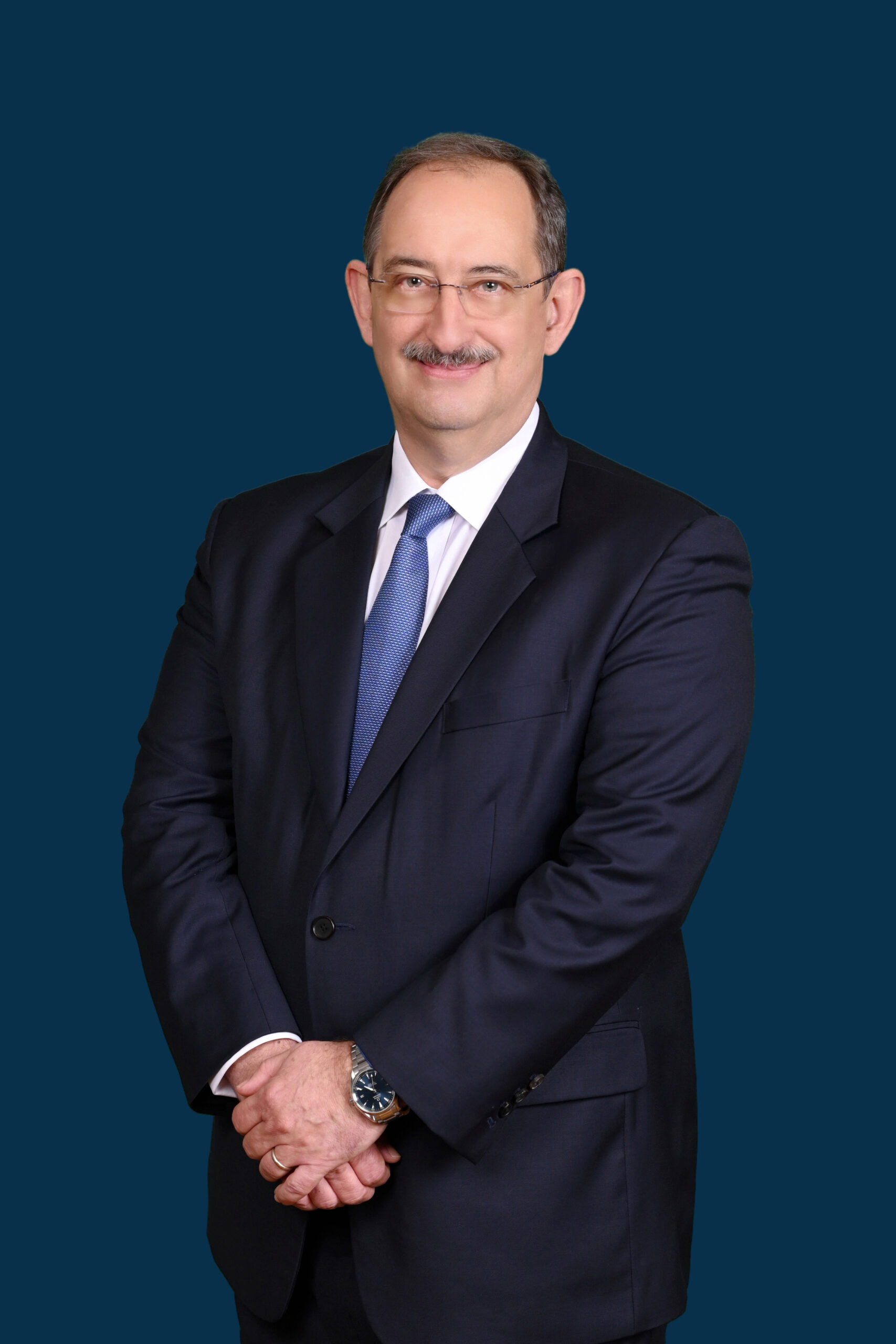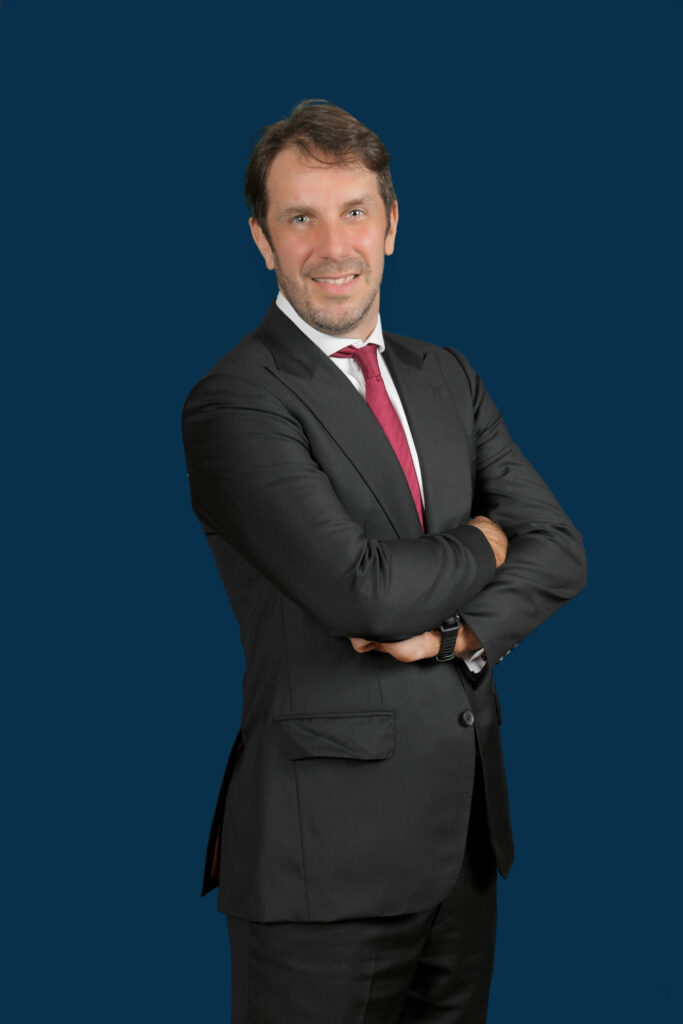DNV and Singapore Maritime Foundation Co-Sponsor a Study to Examine the Impact of Decarbonisation and Digitalisation on Seafarers Through the Prism of Training and Development as well as Attraction and Retention
April 28, 2023
Informed by literature review, expert consultations, and a survey of over 500 sea-going professionals, the study titled “The Future of Seafarers 2030: A Decade of Transformation” examines the key drivers transforming the maritime industry—particularly decarbonisation and digitalisation—and their impact on seafarers in the lead-up to 2030
Singapore, 28 April 2023— DNV today published a study that examines the key drivers transforming the maritime industry—particularly decarbonisation and digitalisation—and their impact on sea-going professionals in the lead-up to 2030. The study, titled “The Future of Seafarers 2030: A Decade of Transformation” was co-sponsored by the Singapore Maritime Foundation to advance the conversation on the training and development of sea-going professionals as well as the attraction and retention of the talent pool.
The findings were obtained through a combination of literature review, expert consultations, and a survey of more than 500 seafarers collectively responsible for operating dry bulk, tanker, and container vessels globally. Seventy percent of the seafarers who responded to the survey had been in the industry for over 11 years. Approximately two-third of the respondents held the rank of officers.
Key Findings
A pressing need for training in new fuels and technology
- Broadly, both officers and ratings strongly indicated a pressing need for training in new fuels and technology—the survey results were consistent across the ranks.
- Over 75% of seafarers (Deck and Engine Officers 78%) indicated they would require partial or complete training on fuels such as LNG, batteries, or synthetic fuel.
- Almost 87% of respondents (Deck and Engine Officers 91%) indicated a need for partial or complete training regarding emerging fuels such as ammonia, methanol, and hydrogen.
- A total of 81% of respondents (Deck and Engine Officers 85%) indicated that they require either partial or complete training in dealing with advanced digital technologies (such as further automation of equipment/systems, advanced sensors, artificial intelligence, remote operations etc.); only 13% (Deck and Engine Officers 11%) agreed that they were well trained.
- 52% Seafarers (Deck and Engine Officers 53%) indicated a strong preference for in-person training at a maritime training centre or academy, with 23% (Deck and Engine Officers 27%) indicating a blend of in-person and online training would be suitable.
- Almost 70% of respondents (Deck and Engine Officers 74%) have used simulators, virtual reality or other digital environments when undertaking training, and 60% (Deck and Engine Officers 65%) indicated that these training methods helped develop their skills. Only 10% (Deck and Engine Officers 9%) of the respondents indicated that these training methods were ineffective in developing their skills.
Embracing new technology
- Two-thirds of seafaring officers said more advanced technology onboard would make their job easier. This positive feedback from seafarers on the introduction of new technologies onboard fits well with the thriving maritime innovation ecosystem with increasing venture capital funding, particularly in Singapore.
- However, only 40% of seafaring officers think shore-based remote-control centres, which can remotely operate some or all functions, would make their onboard job easier.
Sustainability and technology as talent recruitment and retention tools
- A total of 55% of respondents (Deck and Engineering Officers 50%) indicated that new developments in fuels, automation and digitalisation onboard ships can assist in attracting new seafarers to a career at sea and retaining existing seafarers.
Key Recommendations
Corollary to the key findings, the study puts forward a number of recommendations, particularly in the area of seafarer training and development well as attraction and retention, including:
A collective responsibility to prepare seagoing professionals for the future
- Key stakeholders such as regulatory bodies, shipowners/operators/managers and training academies should carefully assess and target the skill deficits in digitalisation and decarbonisation in the current decade to ensure seafarers have the necessary skills in place when they are needed in the future. Training could be prioritised on LNG and batteries as these fuel types are likely to be the most prevalent ‘alternative option’ in the current decade, and as the number of vessels in operations and on orders having LNG and battery or battery-hybrid has significantly grown in the last few years.
- The industry should use the future seafarer training model where maritime training academies focus on delivering basic/generalised shipboard skills while ship operators should be focusing on delivering fuel-specific and vessel-specific training.
Opportunity to employ modern training methods to address augmented training and development
- The industry is well placed to embrace modern training methods to fill the skills deficit and enhance seafarers’ development in the current decade. Although not all training will be suited to a single medium, the industry should be encouraged to effectively use a range of training options to enable training to be accessed universally, promptly and comprehensively. This may result in the blending of training courses to have both a digital and in-person component to make best use of the available training resources and thereby be more accessible to seafarers. There is also scope to further include technologies such as VR/AR in enhancing seafarer training.
- Shipowners/operators/managers and training academies must ensure that the best-placed seafarers based on position onboard, experience and availability are trained at the right time to ensure continuity of operations and knowledge and skills transfer. This may result in Senior Officers being trained on new technologies and fuels first to enable an effective mentoring and on-the-job training environment onboard. The junior crew could have their onboard training supplemented by harnessing the available technology assisted training (e.g., virtual reality, simulators etc.).
- Future STCW courses could introduce updated fire-fighting techniques and methods into the curriculum to combat the new types of fire, posed by adoption of new and emerging fuels.
- It is recommended that a renewed focus on the development of a seafarer’s soft skills be made by maritime training organisations and by employers of seafarers.
Providing a pathway for sustainable career progression for seagoing professionals, vital for talent attraction and retention
- Shipowners/operators/managers should closely manage their seafarer’s progression opportunities from both an attraction-retention point of view and an operational capability perspective. The career development opportunities that digitalisation and decarbonisation present should be leveraged to retain and attract people to a seafaring job.
- Shipowners/operators/managers should harness seafarers’ unique and desirable skill sets and provide them with opportunities for complementary shore-based roles such as vessel control and monitoring facilities (shore control centers), which will likely become more prevalent later in the current decade and beyond.
Quote from the Singapore Maritime Foundation
“As industry transformation—spurred by digital innovation and fuel transition—picks up pace, we must prioritise the training and development of sea-going professionals, ensuring that they possess the technical competencies to safely operate the more advanced ships that are coming on stream. Digitalisation and decarbonisation could present opportunities to attract a younger generation of sea-going professionals, provided a pathway to sustainable career development is visible, transiting from sea to shore based careers. I thank DNV for their partnership in developing this study, which we hope could serve to provide useful inputs to advance the discussion in the training and development as well as attraction and retention of sea-going professionals,” said Ms. Tan Beng Tee, Executive Director, Singapore Maritime Foundation
Quote from DNV
“Emerging fuels and new technologies could pose safety risks for assets and crews, if not handled properly. Therefore, we must focus on the human factor and adequately train seafarers who operate and maintain ship systems, including carrying out bunkering operations. As an industry, we have a responsibility to keep them safe and well prepared for all eventualities. Therefore, we are pleased to have helped, with this study, to identify challenges and opportunities for seafarers in an era of transformation driven by decarbonisation and digitalisation”, said Ms. Cristina Saenz de Santa Maria, Regional Manager South-East Asia, Pacific & India, DNV Maritime.
“The Future of Seafarers 2030- A Decade of Transformation” working document can be downloaded from https://www.smf.com.sg/resources-publications/.
–END–
About the Singapore Maritime Foundation
Established in 2004, the Singapore Maritime Foundation (SMF) is a conduit between the public and private sectors to accomplish the twin mission of developing and promoting Singapore as an International Maritime Centre (IMC); and to attract, engage and grow a talent pipeline to position Maritime Singapore for continued growth. For details, visit https://www.smf.com.sg
About DNV
We are the independent expert in risk management and quality assurance. Driven by our purpose to safeguard life, property, and the environment, we empower our customers and their stakeholders with facts and reliable insights to make critical decisions with confidence. As a trusted voice for many of the world’s most successful organizations, we use our knowledge to advance safety and performance, set industry benchmarks, and inspire and invent solutions to tackle global transformations.
DNV is the world’s leading classification society and a recognized advisor to the maritime industry. We enhance the safety, quality, energy efficiency, and environmental performance of the global shipping industry – across all vessel types and offshore structures. We invest heavily in research and development to find solutions, together with the industry, to address strategic, operational, or regulatory challenges. For details, visit www.dnv.com
Media Contacts
David Lee
davidlee@sgmf.com.sg
+65 9119 8044
Joshua Ong
joshuaong@sgmf.com.sg
+65 9011 6304





